BIO-IMMUNOZYME FORTE (Immunity Support)
*** Please Login or Register with DC Nutrition to see Prices and Add To Cart. ***
Login | Create An Account / Register
Bio-Immunozyme Forte is a broad-spectrum product containing vitamins, minerals, enzymes, as well as neonatal bovine gland and organ components known to support immune function. It's in a base of superoxide dismutase, catalase, Echinacea, methyl-donors, OOrganik15 and chlorophyll. It's probably one of the top four sellers that Biotics Research produces and it works wonderfully. I think one of the reasons that many doctors buy it is that it works so well in low doses for the chronically ill patient. With many immune products that are available in the marketplace, you have to give patients 10, 15, 20 capsules a day to get any results. In the chronic phase with Bio-Immunozyme Forte, one caspsule, three times a day is generally sufficient.
There is a doctor in Lansing, Michigan who is one of the top users of this product. With chronic immune problems, he starts patients off at three a day for a month, then two a day the following month, then one a day for the rest of their life. He gets excellent results using the product in this manner.
Hepatitis B and hepatitis C have become a serious problem in the U. S. The basis of support for this problem is to use Bio-Immunozyme Forte, two capsules, two or three times a day along with Cytozyme-THY, which is neonatal thymus, at four tablets three times a day. The patient must also take Livotrit-Plus beginning at one tablet, three times a day and gradually increase to a maximum of six tablets per day. Beta-TCP should be used at two tablets three times a day anytime Livotrit-Plus is used. The Beta-TCP will open the bile tract and insure the virus and other toxins maintained in the liver are given a route out of the body. BioProtect is your antioxidant at three capsules a day. Take Dismuzyme Granules at one teaspoon three times a day, and Cytozyme-LV, the neonatal liver, at two tablets three times a day. The 21st Century Homeopathic for Lymphatic Drainage and Virus should also be used.
I have been told that there are physicians who can show before and after blood chemistries on some people where they have taken liver enzyme blood chemistries from the 500-600 pathological range down to below 100 in less than six months. Some of these people were scheduled for liver transplants. They had gone through the interferon therapy with no success, and their next option was a liver transplant.
PRODUCT DESCRIPTION
BIO-IMMUNOZYME FORTE
**Two (2) capsules supply:
Neonatal Adrenal Complex 20 mg
Neonatal Thymus 60 mg
Neonatal Spleen 60 mg
Neonatal Liver 60 mg
Neonatal Pancreas 60 mg
Parotid Tissue 40 mg
Lymph Tissue 60 mg
Placenta 20 mg
Lactobacillus acidophilus (DDS-1) 1 million
Vitamin A (palmitate) 5,000 I.U.
Natural mixed carotenoids 1,667 I.U.
Vitamin C (mixed ascorbates) 200 mg
Vitamin E 30 I.U.
(d-alpha tocopheryl acetate)
Citrus Bioflavonoids 50 mg
Vitamin B1 (cocarboxylase) 10 mg
Vitamin B2 (riboflavin 5-phosphate) 10 mg
Vitamin B6 (pyridoxal- 5-phosphate) 15 mg
Niacinamide 20 mg
Copper (gluconate) 2 mg
Manganese (gluconate) 2 mg
Zinc (gluconate) 30 mg
Selenium 50 mcg
(vegetable culture/selenomethionine)
Pantothenic Acid (B5) 25 mg
Trypsin/Chymotrypsin 25 mg
L-Lysine HCL 100 mg
Coenzyme 010 (emulsified) 1 mg
Superoxide Dismutase 400 Units
Catalase, Glutathione Peroxidase, and other Peroxidases 400 Units
In a specially prepared botanical base of Echinacea,
OOrganik-15 culture, chlorophyllins, Capsicum
annuum, and specially grown biologically active
vegetable culture.
SUGGESTED USE: Two (2) tablets each day as a dietary supplement or as otherwise directed by a health care professional.
Contains: 90 Capsules
Product #: 6300
NDC: 55146-06300
ADDENDUM
THE IMMUNE SYSTEM
The two arms of the immune system, humoral and cell-mediated immunity, work together as an integrated defensive system. Normally, antibodies are produced in response to a foreign material (acquired immunity). Immune complexes form between antibodies and antigens and are scavenged from the circulation or mucosal surfaces. Cell-mediated immunity relies on T and B-lymphocytes, mast cells, macrophages and others. T-cells regulate other defensive cells, including macrophages and killer cells. Cells of the immune system, turn over rapidly, hence their nutrient requirements are high.
In addition, phagocytic cells generate free radicals and other reactive species to attack invaders. These oxidants contribute to the oxidative burden of organs which, if unchecked by the body's antioxidant defenses, can damage membrane lipids, diminish T-cell function and injure mucosal cells. Membranes damaged by lipid peroxidation may offer less resistance to infection. The production of radicals from endogenous and exogenous sources consumes antioxidants. Consequently, a variety of nutrients and factors support immune function.
VITAMINS
Vitamin A has long been known to support mucosal cell surfaces and the immune system. Vitamin A helps maintain the integrity of lymphatic tissues, antibody levels (especially sIgA), and responses of cellular immunity to challenge by exogenous stimulatory substances. However, the effects are selective, Possibly, a metabolite of retinol regulates lymphocytes. In vitamin A-deficient rates, phagocytic activity of circulating polymorphonuclear lymphocytes declined. The integrity of epithelial cells and production protective agents, such as mucus secretions, are essential for healthy mucosa. In vitamin A deficiency, the mucosa, glands and ducts are susceptible to disease. Vitamin A requirements appear to be only partially met by the consumption of dark, green, leafy vegetables.
Vitamin C scavenges free radicals and is essential for the function of many systems, including the immune system. Vitamin C is required for eicosanoids that regulate inflammation, and it combats the effects of oxidative stress. Vitamin C is a major antioxidant in the blood and it works together with vitamin E. For example, supplemental vitamin C and vitamin E decreased the production of reactive oxygen species and of lipid peroxidation in patients with myocardial infarction. During periods of stress, urinary excretion of vitamin C increased. Vitamin C supplemented volunteers exhibited increased natural killer cell activity. B vitamin deficiency is characterized by reduced phagocytic activity. Vitamin B2, B6 and pantothenic acid have specifically shown an ability to enhance antibody production. Lack of Vitamin B reduces the spleen's ability to produce antigens. Vitamin B is necessary for proper thymic function.
Vitamin B6 as pyridoxal phosphate, the coen-zyme form of the vitamin, is required by transaminases and amino acid decarboxylases in the breakdown of amino acids. As such, vitamin B6 plays a critical role in all rapidly dividing cell types. Human studies, as well as animal experiments, link vitamin B6 deficiency to reduced lymphocyte differentiation, reduced delayed hypersensitivity responses and impaired antibody production. Other research suggests that suboptimal vitamin B6intake may play a role in a defective immune response in hemodialysis patients.
Pantothenate deficiencies are associated with infections of the upper respiratory tract and pharyngitis. Pantothenic acid is necessary for immunoglobulin production. Proper adrenal function requires pantothenic acid, ascorbic acid and zinc. These water-soluble nutrients are necessary during stress.
CO-FACTORS
Mixed natural carotenoids, isolated from plants, include alpha and beta-carotenes and oxy-carotenoids, such as zeaxanthin, lutein and cryptoxanthin. Carotenoids complement vitamin E as lipid-soluble antioxidants. The natural mixed carotenoids are better absorbed and are more effective antioxidants than synthetic beta-carotene in vivo. By acting as antioxidants, carotenoids can limit lipid peroxidation. As example, beta-carotene supplementation reduced lipid peroxidation in smokers beta-carotene has long been known to have a protective impact on the immune system. Healthy male nonsmokers supplemented with beta-carotene revealed increased CD4-CD5 ratio after 9 months compared to controls who had taken a placebo. After supplementation with beta-carotene, there were significant increases in monocytes expressing major histo-compatibility complex molecules, adhesion molecules and TNF secretion in a similar group of subjects. Co-Enzyme Q10 functions both as an essential mitochondrial electron carrier for energy production and as a lipid-soluble antioxidant, and dietary coenzyme Q10 can decrease plasma production of lipid peroxides. Although coenzyme Q10 can be synthesized by the body, the levels in membranes of mitochondrial and other structures may be lower than needed for optimal function. Thymic coenzyme Q10 levels declined in mice with increasing age. Coenzyme Q10 together with vitamin B6 supported the production of T4-lymphocytes and immunoglobulins.
MINERALS
Selenium is a trace mineral that is converted to selenocysteine, which plays a catalytic role in glutathione peroxidase production. And in this sense, selenium can be considered an antioxidant. Selenium has a major impact on the immune system. Selenium deficiency can lead to depressed immunity and reduced T-cells. Glutathione peroxidase activity was significantly higher in younger people than in elderly subject.
Copper, Manganese and Zinc: Superoxide dismutase (SOD) is the only family of enzymes that specifically inactivate free radicals, namely, the superoxide radical. Excessive superoxide production, as well as excessive amounts of other oxidants, is linked to chronic, oxidative stress.
Mitochondrial SOD requires manganese as an essential cofactor, while the cytoplasmic form of SOD requires both copper and zinc. Manganese SOD and copper-zinc SOD activities in lymphocytes and neutrophils were not inducible by cytokines in elderly subjects, although these activities were readily inducible in nonaged subjects. These results suggested an age-related alteration in the regulation of these defensive enzymes. Erythrocyte copper-zinc SOD activity tends to reflect copper status, and this has been used in laboratory assessment. In addition, supplementation with superoxide dismutase of Biotics Research Corporation's vegetable culture may increase erythrocyte superoxide dismutase activity in vivo.
Zinc plays an important role in maintaining the health of the immune system. It is a required cofactor for DNA polymerase and RNA polymerase, essential for cell proliferation. Rapidly dividing cells, including mucosal cells and immune cells, require zinc. Zinc deficiency leads to atrophy of lymphatic tissues, decreased skin delayed hypersensitivity response, impaired phagocytes, decreased T-cell function and lowered IgA and decreased thymic hormone activity. Zinc supports granulocyte chemotoxis in vitro.
Bio-Immunozyme Forte contains bovine neonatal thymus, spleen, liver, pancrease, in addition to bovine parotid gland, lymphatic and placental tissues. These glandular preparations are processed to maintain nutrients, enzymes and associated factors. Biotics Research Corporation uses bovine neonatal tissues where possible. The newborn animal has not been subjected to environmental factors to which the adult animal is subjected. The thymus is most active within a few days after birth, when it populates lymph nodes and the spleen. The effects of preparations of thymic factors after oral administration have been studied. Thymus extract supported thymic function during environmentally induced physical stress. Spleen extracts can specifically modulate phagocytic activity in vitro. Healthy endocrine pancreatic glands are also important. They secrete glucagon, insulin and somatostatin. Somatostatin regulates growth hormone secretion. Healthy adrenal glands support normal immune function. They produce hormones that adapt the body to stress, including epinephrine and glucocorticolds. Cortisol stabilizes mast cells to inhibit inflammation. It also decreased capillary permeability to limit neutrophil infiltration and it reduces phagocytosis. Laboratory analysis of Biotics Research Corporation's adrenal glandulars did not detect the presence of the steroid hormones. Salivary glands produce factors that can enhance lymphocyte proliferation and support thymus, spleen and lymph nodes in animal models. The major salivary glands also produce antimicrobial factors.
LACTOBACILLUS
Lactobacillus acidophillusis a member of the normal gut flora, which produce vitamins, stimulate the immune system, and produce factors that inhibit growth of less desirable organisms. By occupying an ecological niche in the intestine, they further limit the growth of opportunistic organisms. Lactobacillus can be depleted by an imbalanced diet and the long-term usage of broad-spectrum antibiotics. The effectiveness of supplemental Lactobacillus acidophilus in normalizing GI function has been demonstrated. DDS-1 strain developed at the University of Nebraska has proven to be a superior strain in terms of its compatibility with the human GI tract and its stability. Therefore, the DDS-1 strain is used in Biotics Research supplements.

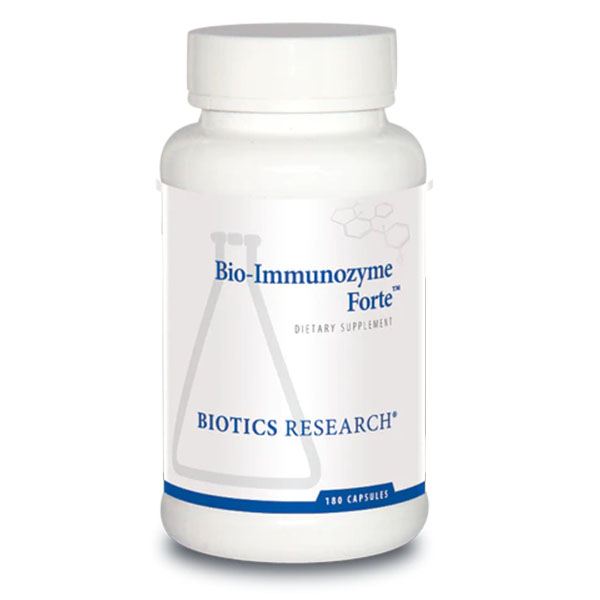
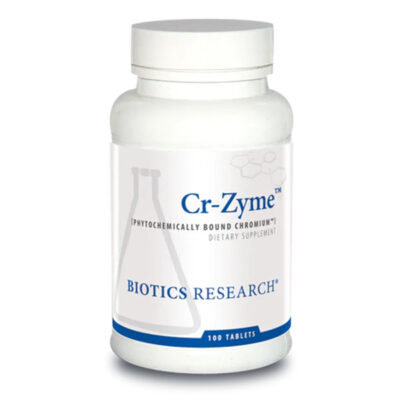
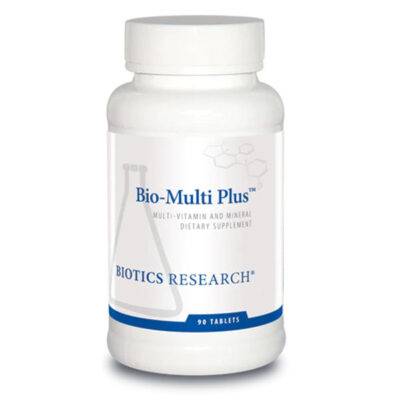
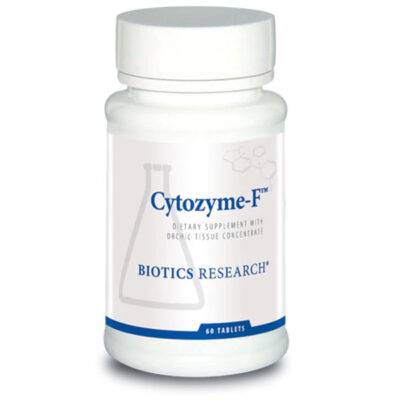
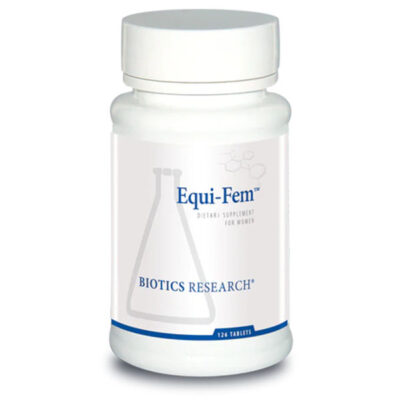
Reviews
There are no reviews yet.